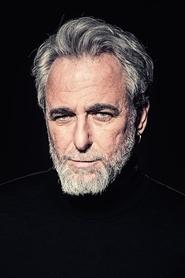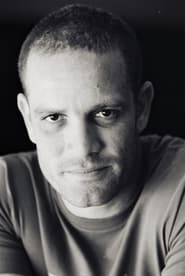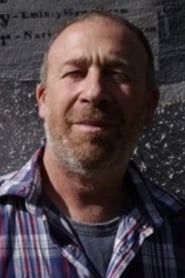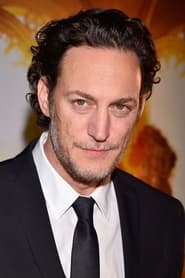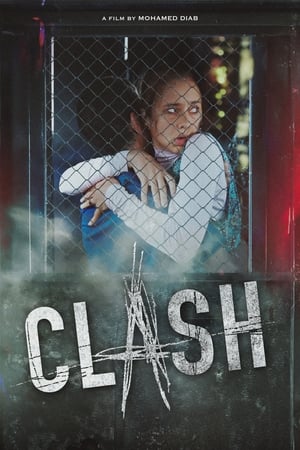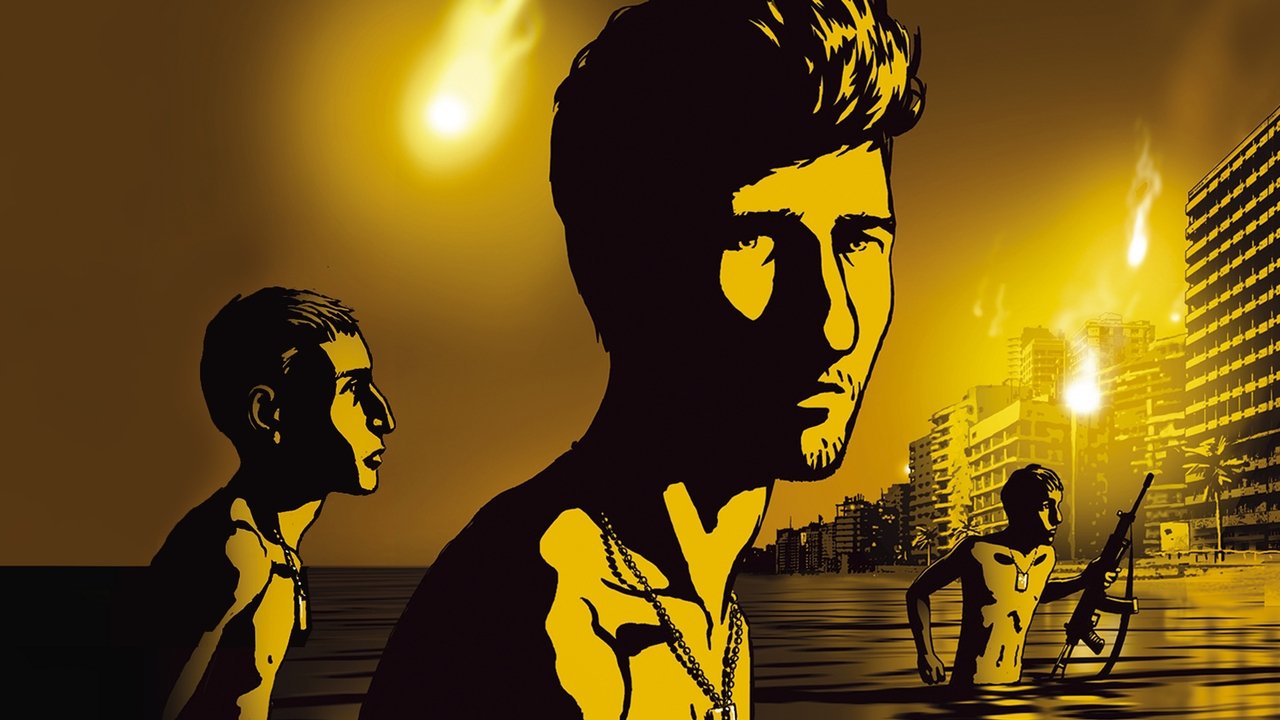
Waltz with Bashir(2008)
One man's journey to uncover his past.
An Israeli film director interviews fellow veterans of the 1982 invasion of Lebanon to reconstruct his own memories of his term of service in that conflict.






Movie: Waltz with Bashir
Top 9 Billed Cast
Self (voice)
Self (voice)
Self (voice)
Self (voice)
Self (voice)
Video Trailer Waltz with Bashir
Recommendations Movies
 5.7
5.7Whitney(en)
Chronicles Whitney Houston's rise to fame and turbulent relationship with husband Bobby Brown.
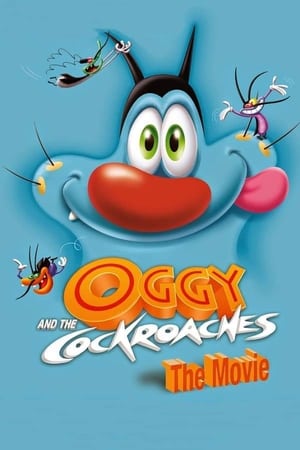 7.0
7.0Oggy and the Cockroaches: The Movie(fr)
Ever since the world was born, two forces have been locked in perpetual battle. Their struggle is so Manichean, so ferocious, so Herculean that it makes the clash between good and evil look like a game of checkers! This ancestral duel is so ancient and so merciless that it can only be, Oggy against the Cockroaches!
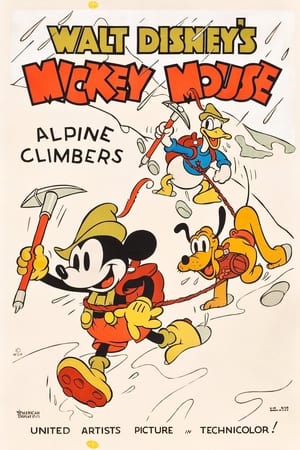 6.4
6.4Alpine Climbers(en)
Donald, Mickey, and Pluto climb the Alps. While up top, Donald has a run-in with a mountain goat over some edelweiss, Mickey has a row with an eagle over its eggs; one of them hatches, and gives Pluto some trouble (as does the grog a Saint Bernard gives him when he falls into a snowbank).
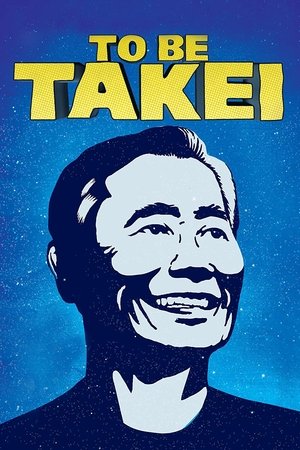 7.4
7.4To Be Takei(en)
Over seven decades, actor and activist George Takei journeyed from a World War II internment camp to the helm of the Starship Enterprise, and then to the daily news feeds of five million Facebook fans. Join George and his husband, Brad, on a wacky and profound trek for life, liberty, and love.
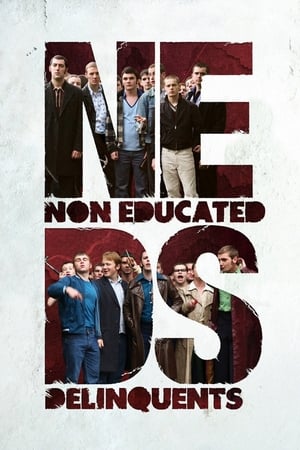 6.8
6.8Neds(en)
NEDs (Non Educated Delinquents) is the story of a young man’s journey from prize-winning schoolboy to knife-carrying teenager. Struggling against the low expectations of those around him, John McGill changes from victim to avenger, scholar to NED, altar boy to glue sniffer. When he attempts to change back again, his new reality and recent past make conformity near impossible and violent self determination near inevitable.
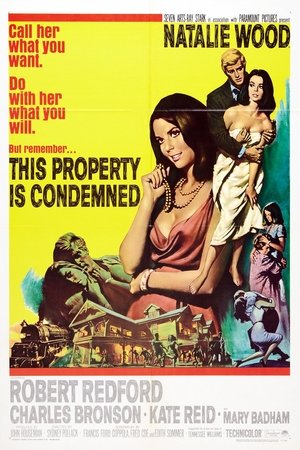 6.3
6.3This Property is Condemned(en)
Owen Legate, a railroad official, comes to Dodson, Mississippi to shut down the local railway - the town's main income. But Owen unexpectedly finds love with Dodson's flirt and main attraction, Alva Starr.
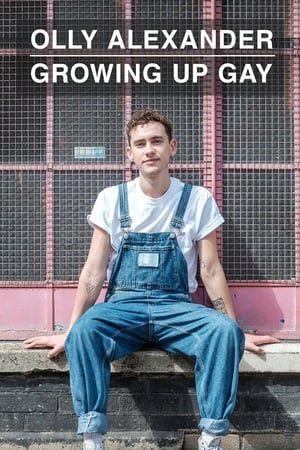 6.6
6.6Olly Alexander: Growing Up Gay(en)
Documentary in which Years and Years frontman Olly Alexander explores the mental health issues faced by members of the LGBT+ community.
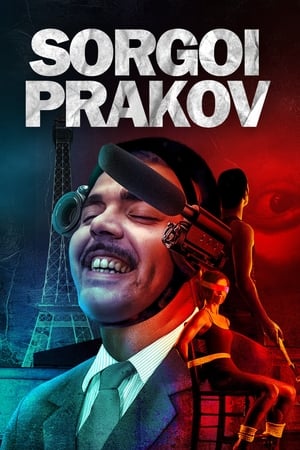 6.7
6.7Descent Into Darkness(fr)
A journalist from an Eastern European country arrives in Paris to start a tour of European capitals. His intention is to make a documentary about the European dream. Between fascination and difficulty of adaptation, Sorgoï struggles to complete his project and his expedition drives him to a devastating state of madness.
 7.0
7.0Drifters(sv)
Minna, a drug addict who makes a living dealing drugs, can't pay rent and after cheating some delinquents she runs with the money. She meets Katja and they move together to an illegal residence outside the city, where a group of people have decided to join and live by their own rules.
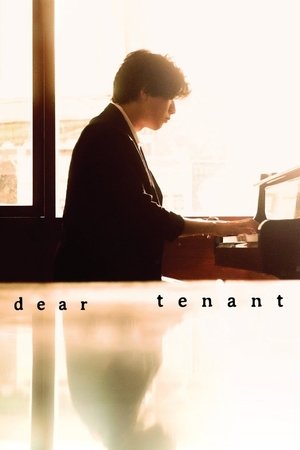 7.1
7.1Dear Tenant(zh)
A boy lives with his Grandma and Mr. Lin, the tenant who looks after him and Grandma. But when Grandma passes away, the boy's uncle returns to Taiwan and discovers that ownership of the apartment was transferred to other people.
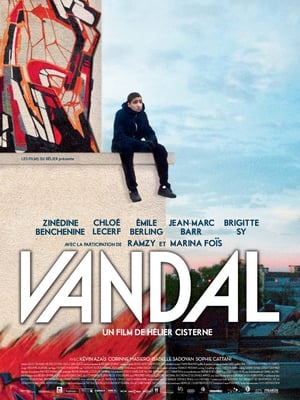 6.7
6.7Vandal(fr)
15-year-old Chérif feels like a million bucks behind the wheel of a stolen car. Placed under the guardianship of his Aunt and Uncle, he has to return to his apprenticeship as a mason. It's his last chance. But every night graffiti artists descend upon the city's walls. And with this, a whole new world opens up before him...
 6.2
6.2National Anthem(en)
A 21-year old construction worker in rural New Mexico joins a community of queer ranchers and rodeo performers in search of their own version of the American dream.
 7.0
7.0Solanin(ja)
Meiko and Taneda are a couple graduated from university two years ago. Unhappy with their lives, Meiko quits her job and encourages Taneda to have his band become professional.
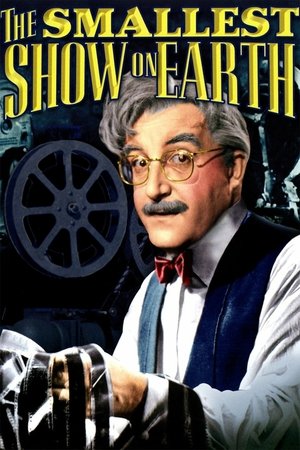 6.6
6.6The Smallest Show on Earth(en)
Jean and Bill are a married couple trying to scrape a living. Out of the blue they receive a telegram informing them Bill's long-lost uncle has died and left them his business—a cinema in the town of Sloughborough. Unfortunately they can't sell it for the fortune they hoped as they discover it is falling down and almost worthless.
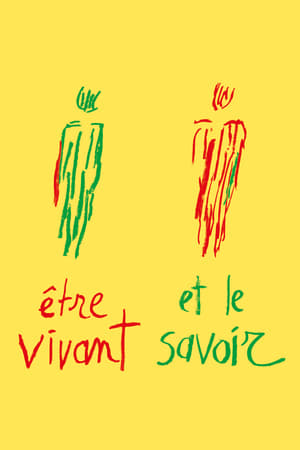 6.1
6.1Living and Knowing You Are Alive(fr)
Novelist and screenwriter Emmanuèle Bernheim and filmmaker Alain Cavalier have been friends for 30 years. They are preparing a film based on the former’s autobiography, “Tout s’est bien passé” (Everything Went Fine). In it, she tells how her father asked her to “end it” in the wake of a heart attack. Cavalier suggests that she plays herself, and that he plays her father. One winter morning, Emmanuèle calls Alain; they will have to postpone the shoot until the spring, as she needs an urgent operation.
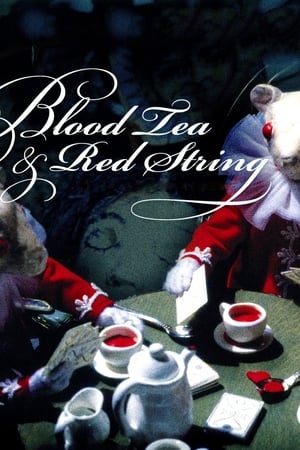 7.0
7.0Blood Tea and Red String(en)
The aristocratic White Mice and the rustic Creatures Who Dwell Under the Oak battle over the doll of their hearts' desire.
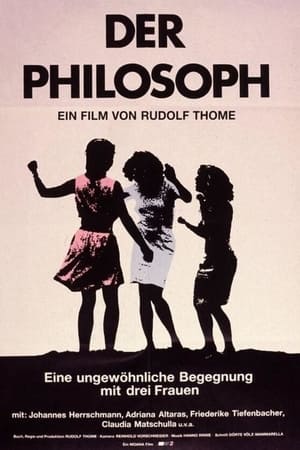 5.7
5.7The Philosopher(de)
The obscure philosopher Georg Hermes almost withdrew from the world to concentrate on his studies, especially Heraclitus, having no relationship since his mother's death. When he wants a new suit for a lecture (actually very minor) about his new book, he meets the sisters Franziska, Breate and Marthe, who run a boutique, share a house and have a lover each. Those invite Georg to dinner, Franziska even on dates. Falling off a boat he gets naked with her, and they become lovers. The girls all take to Hermes and get him to move in, spoiled by all and offered polygamy.
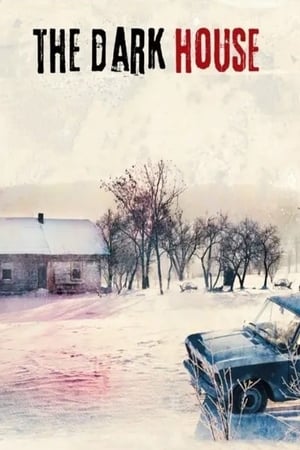 6.5
6.5The Dark House(pl)
Poland, 1978. Edward Srodon, a zootechnician, makes an accidental stop at the Dziabas family farm, located in the remote area of the Bieszczady Mountains. Years later, on a winter day during Martial Law, a People's Militia investigation team examines a crime scene.
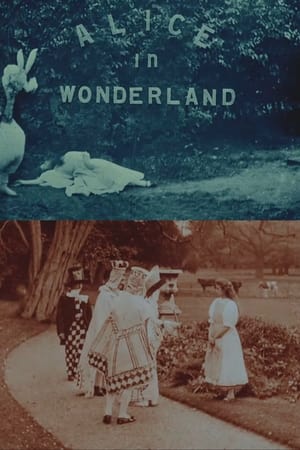 6.0
6.0Alice in Wonderland(en)
This is the first movie version of the famous story. Alice dozes in a garden, awakened by a dithering white rabbit in waistcoat with pocket watch. She follows him down a hole and finds herself in a hall of many doors.
Similar Movies
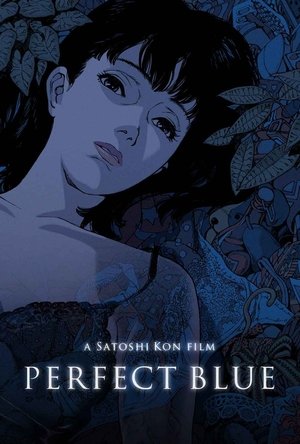 8.3
8.3Perfect Blue(ja)
Encouraged by her managers, rising pop star Mima takes on a recurring role on a popular TV show, when suddenly her handlers and collaborators begin turning up murdered.
 4.5
4.5Iron Eagle II(en)
Chappy Sinclair is called to gather together a mixed Soviet/U.S. strike force that will perform a surgical strike on a massively defended nuclear missile site in the Middle East. Chappy finds that getting the Soviet and U.S. Pilots to cooperate is only the most minor of his problems as he discovers someone in the Pentagon is actively sabotaging his mission.
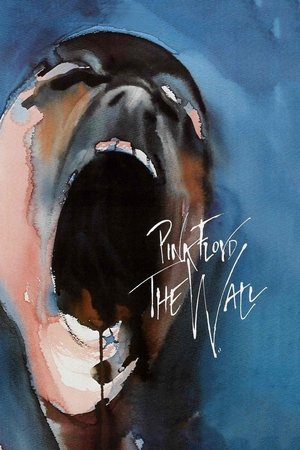 8.0
8.0Pink Floyd: The Wall(en)
A troubled rock star descends into madness in the midst of his physical and social isolation from everyone.
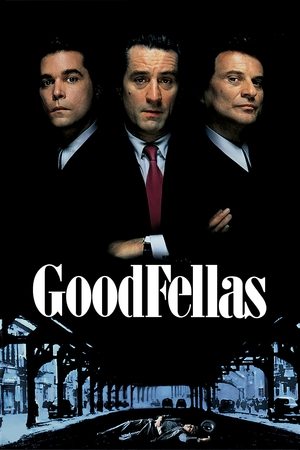 8.5
8.5GoodFellas(en)
The true story of Henry Hill, a half-Irish, half-Sicilian Brooklyn kid who is adopted by neighbourhood gangsters at an early age and climbs the ranks of a Mafia family under the guidance of Jimmy Conway.
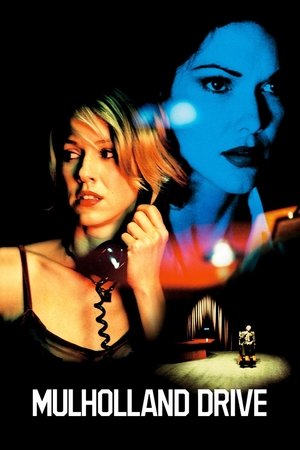 7.8
7.8Mulholland Drive(en)
Blonde Betty Elms has only just arrived in Hollywood to become a movie star when she meets an enigmatic brunette with amnesia. Meanwhile, as the two set off to solve the second woman's identity, filmmaker Adam Kesher runs into ominous trouble while casting his latest project.
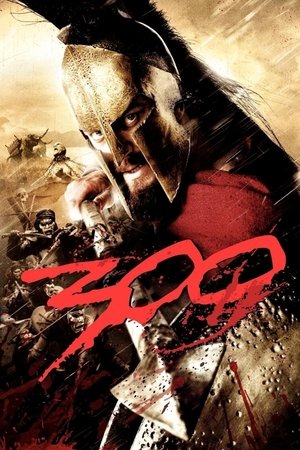 7.2
7.2300(en)
Based on Frank Miller's graphic novel, "300" is very loosely based the 480 B.C. Battle of Thermopylae, where the King of Sparta led his army against the advancing Persians; the battle is said to have inspired all of Greece to band together against the Persians, and helped usher in the world's first democracy.
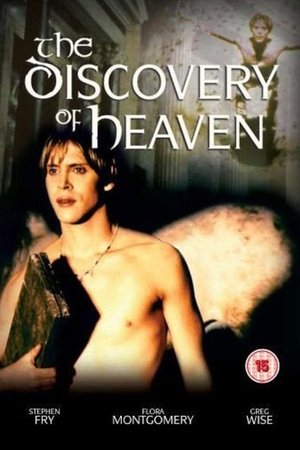 6.5
6.5The Discovery of Heaven(en)
Disappointed with humanity, God wants to revoke his contract with humanity and wants to take back the stone tablets containing the ten commandments. To this end an angel is sent out to affect the personal lives of three humans so an appropriate child may be conceived.
 7.6
7.6Battleship Potemkin(ru)
A dramatized account of a great Russian naval mutiny and a resultant public demonstration, showing support, which brought on a police massacre. The film had an incredible impact on the development of cinema and is a masterful example of montage editing.
 7.9
7.9Ben-Hur(en)
In 25 AD, Judah Ben-Hur, a Jew in ancient Judea, opposes the occupying Roman empire. Falsely accused by a Roman childhood friend-turned-overlord of trying to kill the Roman governor, he is put into slavery and his mother and sister are taken away as prisoners.
 8.0
8.0Andrei Rublev(ru)
An expansive Russian drama, this film focuses on the life of revered religious icon painter Andrei Rublev. Drifting from place to place in a tumultuous era, the peace-seeking monk eventually gains a reputation for his art. But after Rublev witnesses a brutal battle and unintentionally becomes involved, he takes a vow of silence and spends time away from his work. As he begins to ease his troubled soul, he takes steps towards becoming a painter once again.
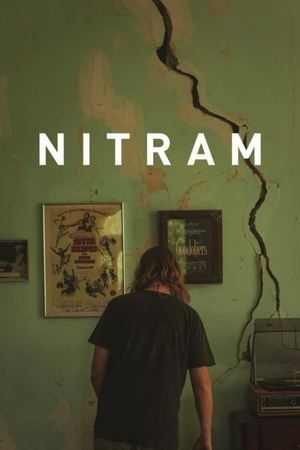 7.0
7.0Nitram(en)
Based on true events, "Nitram" lives with his parents in suburban Australia in the mid-90s. He lives a life of isolation and frustration at never fitting in. As his anger grows, he begins a slow descent into a nightmare that culminates in the most heinous of acts.
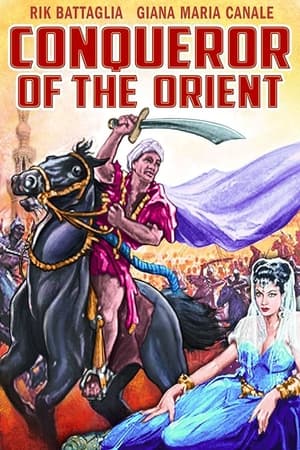 7.0
7.0Conqueror of the Orient(it)
Centuries ago in the Orient, the fiscal exactions on the people lead to a revolt against the usurper of the throne, and the empowerment of a new leader.
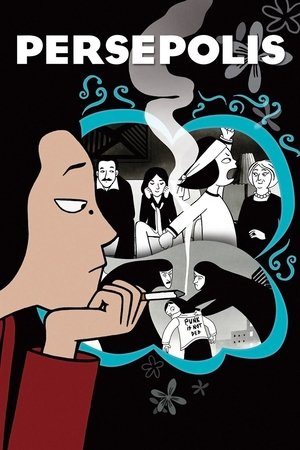 7.9
7.9Persepolis(fr)
In 1970s Iran, Marjane 'Marji' Satrapi watches events through her young eyes and her idealistic family of a long dream being fulfilled of the hated Shah's defeat in the Iranian Revolution of 1979. However as Marji grows up, she witnesses first hand how the new Iran, now ruled by Islamic fundamentalists, has become a repressive tyranny on its own.
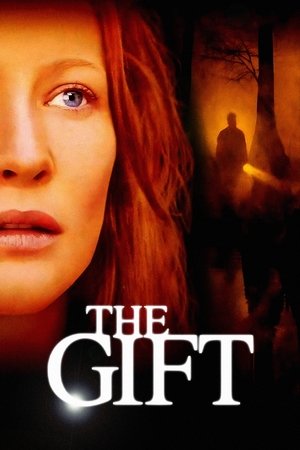 6.5
6.5The Gift(en)
Annie Wilson, young widow and mother of three, makes her living foretelling others' futures—though her own has become cloudier than even she can see. Threatened by a client's violent husband and plagued by visions of a missing local woman, Annie finds herself pulled into a thicket of lies and deception in which her extraordinary gift may ultimately get her killed.
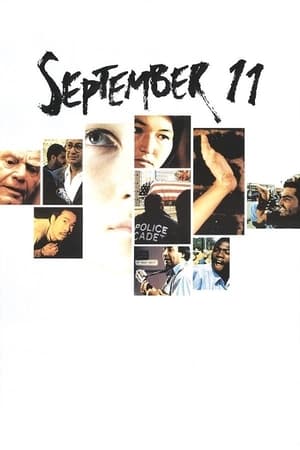 6.4
6.411’09”01—September 11(fr)
Filmmakers from all over the world provide short films – each of which is eleven minutes, nine seconds, and one frame of film in length – that offer differing perspectives on the 9/11 terrorist attacks.
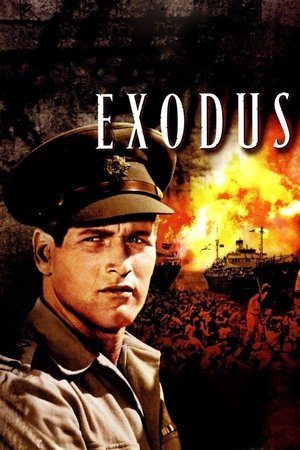 6.7
6.7Exodus(en)
Ari Ben Canaan, a passionate member of the Jewish paramilitary group Haganah, attempts to transport 600 Jewish refugees on a dangerous voyage from Cyprus to Palestine on a ship named the Exodus. He faces obstruction from British forces, who will not grant the ship passage to its destination.
 7.5
7.5Bowling for Columbine(en)
This is not a film about gun control. It is a film about the fearful heart and soul of the United States, and the 280 million Americans lucky enough to have the right to a constitutionally protected Uzi. From a look at the Columbine High School security camera tapes to the home of Oscar-winning NRA President Charlton Heston, from a young man who makes homemade napalm with The Anarchist's Cookbook to the murder of a six-year-old girl by another six-year-old. Bowling for Columbine is a journey through the US, through our past, hoping to discover why our pursuit of happiness is so riddled with violence.
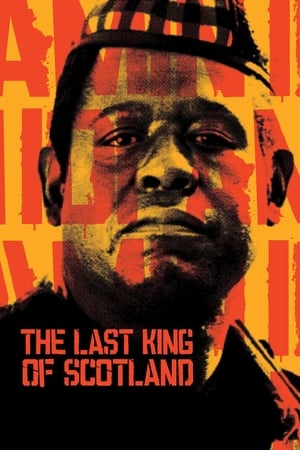 7.4
7.4The Last King of Scotland(en)
Young Scottish doctor, Nicholas Garrigan decides it's time for an adventure after he finishes his formal education, so he decides to try his luck in Uganda, and arrives during the downfall of President Obote. General Idi Amin comes to power and asks Garrigan to become his personal doctor.
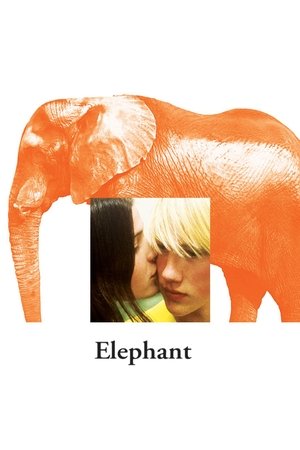 7.1
7.1Elephant(en)
Several ordinary high school students go through their daily routine as two others prepare for something more malevolent.
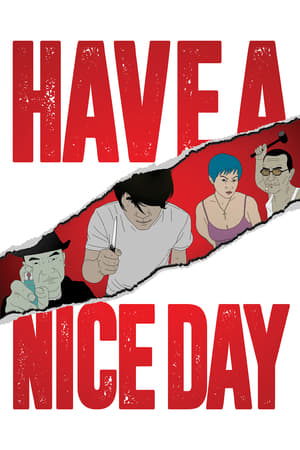 5.5
5.5Have a Nice Day(zh)
Three parties pursue the million dollars that driver Xiao Zhang stole to help out his girlfriend.

